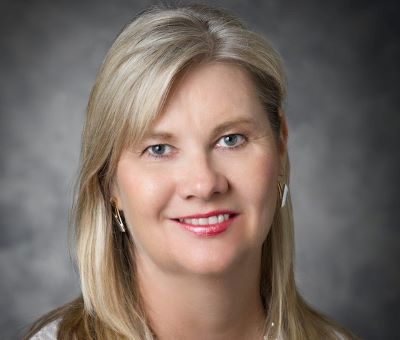I often hear executives lament the shortage of women engineers, primarily because there are so few. As this year’s International Women in Engineering Day approaches on 23rd June, it’s worth reflecting on the fact that only 16.5 per cent of all engineers in the UK are women, according to the UK Women’s Engineering Society. The picture is no better globally, where women account for merely 15 per cent of the engineering workforce.
Answering why this is the case starts with girls not seeing themselves or their future in engineering from an early age. At ages 11-14, 46.4 per cent of girls in the UK would consider a career in engineering versus 70.3 per cent of boys. By the time girls reach ages 16-18, only 25 per cent remain interested versus 52 per cent of boys, an Engineering UK study found in 2018.
Generating interest in engineering from early years to early careers is vital if we are to ensure more women participate in the engineering decisions reshaping our world. In aerospace, we are designing and digitally enhancing products faster than we can fill our rapidly expanding engineering and technology roles. Recruiting more women engineers is not only a matter of equity but a matter of necessity.
When I was young I did not see my future in the engineering sector. Although my father was an engineer who had a PhD in Photogrammetry and Mathematics, it never occurred to me that I would follow in the same field and I pursued a completely different track.
My father’s decision to move the family from Scandinavia to Florida to take up a job in the aerospace industry transformed my life. It convinced me to pursue “something global” since I had learned numerous languages. I studied Political Science and International Relations and obtained a Master’s degree in Business Administration. It was only after that, by sheer coincidence, I accepted a dream job offer to work for Boeing on the Finnish F/A-18 fighter program.
Once at Boeing, a female mentor showed me how exciting my career could be. She helped me understand how my skills were valuable in aerospace and transferrable from program to program and country to country. Her vision and foresight enabled me to see how far I could go, taking me across the world when I led global business development for Boeing’s defence division.
As a company, Boeing has resolved that we must – and will – do our part to create the same chance for more women in the UK, and we want to encourage others to do the same.
We plan to, and we must, do more to encourage women to play a part in developing innovative technologies in the UK that will benefit the industry worldwide
To inspire more women to be the aeronautical innovators of tomorrow, we actively partner with the entire UK aviation sector to expand the number of women in skilled and aviation-related science, technology, engineering and mathematics (STEM) jobs. For example, the Glasgow Newton Flight Academy allows children of all ages to learn aviation-related concepts. We also partner with six universities on research and development and support charitable programmes with organisations such as the Air League, Royal Aeronautical Society, and Royal Academy of Engineering to break down educational and financial barriers. And we welcome about 100 apprentices yearly, 25 per cent of whom are women.
We plan to, and we must, do more to encourage women to play a part in developing innovative technologies in the UK that will benefit the industry worldwide. We hold ourselves accountable to have 30 per cent of our employees in the UK to be women at all levels by 2030, up from 23 per cent now.
Some reports forecast that if progress continues at its current pace, it will take more than a century for our world to reach gender equality, especially in male-dominated fields like engineering. But surely, as an industry we can move faster if more organisations take action now to make closing the STEM gender gap a reality. We applaud, for example, the UK Government’s recent launch of a training programme to help more women return to their STEM jobs after lengthy career breaks.
Our industry has a strong track record for reshaping society’s norms and generating impact beyond aviation. Before commercial aviation introduced the jet age in the 1950s, few people could foresee that flying would become widely available. Until our industry took humanity to space in the 1960s, no one could have envisioned we would explore the Moon.
The time has come for our industry to reshape norms once more: make engineering a career where more women see themselves. This starts with fostering young women and girls’ interest in STEM, keeping the prospect of an engineering career firmly open as they progress through education. It also means providing and encouraging the mentors and sponsors, who show them the way and encourage them to progress. No single company or entity can tackle some of the major challenges we have ahead of us. Accelerating progress will require a broad, team effort. We are stronger when we come together and the time is now.

Maria Laine, President of Boeing in the UK, Ireland, the Nordic Region











Water Sector Talent Exodus Could Cripple The Sector
Well let´s do a little experiment. My last (10.4.25) half-yearly water/waste water bill from Severn Trent was £98.29. How much does not-for-profit Dŵr...